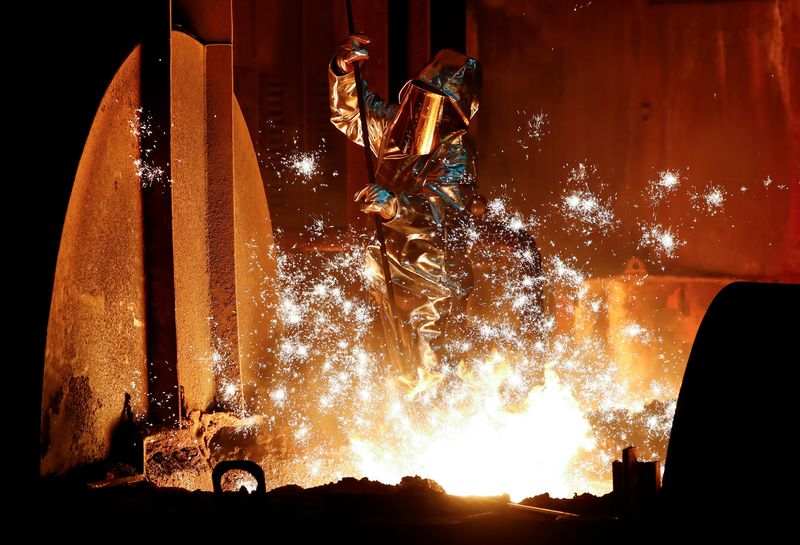By Lucy Raitano
LONDON (Reuters) - Euro zone manufacturing activity is deteriorating fast, as evidenced by Monday's Purchasing Managers surveys, and yet European cyclical stocks are on a tear versus their defensive counterparts - a dynamic analysts say can't last.
The performance of European cyclical stocks versus defensive stocks, and year-on-year percentage changes in the European manufacturing purchasing managers' index (PMI), usually move in tandem. But in recent months they have parted ways, opening up the widest gap between the two since at least 2007.
"The correlation has broken down," said Mislav Matejka, head of Global and European Equity Strategy at JPMorgan.
Matejka says cyclical stocks are behaving as if there were a strong acceleration in economic momentum. Meanwhile, bond yields are flat or down and the manufacturing data is weakening, he said, creating a risk that the equity market is too optimistic.
Cyclical sectors like airlines, banks and autos are typically more exposed to the ebb and flow of the economy, while defensive sectors like healthcare, staples and utilities tend to provide stable earnings and consistent returns, and would typically outperform as business activity slows.
But even as PMIs in Europe contract, the MSCI European cyclical index has risen 17.7% so far in 2023, compared with a gain of 10.3% for its defensive counterpart.
Emmanuel Cau, head of European equity strategy at Barclays (LON:BARC), flagged a distortion in the data caused by inflation, saying that high prices have filtered through to earnings but not to PMIs.
"...PMIs do reflect the volume dynamic but don’t reflect the impact of inflation. Earnings though have largely been benefitting from inflation from strong pricing."
He also said sentiment surveys have been weaker than the hard data in Europe.
Either way, the two will have to revert to trend somehow.

For JPMorgan (NYSE:JPM)'s Mislav, the gap could close one of two ways. Either cyclical sectors will roll over, or investors' belief that manufacturing has deteriorated so much that it's bound to recover soon will be proven right.
His team is advising investors reduce exposure to cyclicals and buy back underperforming defensives.